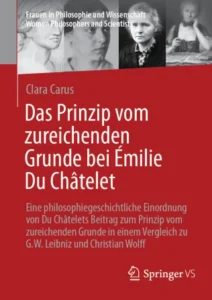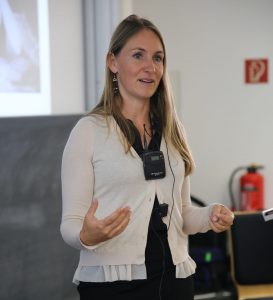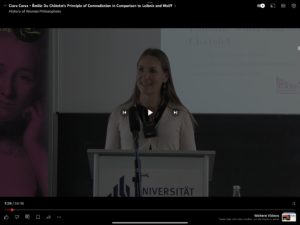
Today, we would like to introduce you to the new Springer book: „Das Prinzip vom zureichenden Grunde bei Émilie Du Châtelet“. This book explores Émilie Du Châtelet’s contribution to the history of philosophy and science during the transition from the early modern period to modernity, focusing on her understanding of the principle of sufficient reason. Du Châtelet’s definition, demonstration, and application of the principle are examined in comparison to its interpretation by her predecessors, Gottfried Wilhelm Leibniz and Christian Wolff. The principle of sufficient reason is a fundamental epistemic axiom that shapes the rationalists of the early modern era. This book investigates how Du Châtelet’s interpretation of the principle marks the conclusion of her era. The book is aimed at students, educators, and researchers in the history of philosophy and science of the early modern period, as well as anyone interested in theories of causality and the principle of sufficient reason.
Interested? For more details about this book, please visit here. You can also explore our entire Springer book series here.

Author: Clara Carus
Clara Carus is co-founder and was organizer of the project New Voices on Women in the History of Philosophy at the Center for the History of Women Philosophers and Scientists, led by Ruth E. Hagengruber. Her research focuses on Émilie du Châtelet, in particular her conception of knowledge and her method of “idea analysis”. Clara also studies the work of Elisabeth of Bohemia, in particular her critique of Descartes’ views on body and mind. In addition, she examines historical statements by women about women’s education, with a particular focus on Mary Wollstonecraft. Here you can find her new voices research profil.
Be also sure to check out Clara Carus’ insightful talk, Émilie Du Châtelet’s Principle of Contradiction in Comparison to Leibniz and Wolff, which concluded Day 2 of the conference Émilie Du Châtelet in Relation to Leibniz and Wolff – Similarities and Differences at the University of Paderborn. You can watch her lecture on our YouTube channel to delve deeper into her analysis of Du Châtelet.
You cannot copy content of this page









